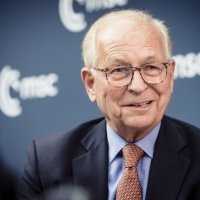The Transatlantic Relationship and the New Global Agenda
Overview
Summary of remarks by His Excellency Wolfgang Ischinger, ambassador of the Federal Republic of Germany to the United States
German Ambassador Wolfgang Ischinger said that working to combat international terrorism now tops the German-U.S. bilateral agenda. Prior to September 11, he said, other topics dominated the agenda—from Germany's opposition to the death penalty to America's opposition to the Kyoto Protocol, from missile defense to trade—all of which still need to be addressed. In addition, new global issues have emerged since September 11, concerning such questions as the subsequent steps in the war on terrorism and the treatment of detainees.
Ischinger underscored that the transatlantic relationship is stronger than ever, imbued with "a renewed sense of common vision and purpose." Germany, he said, regarded the attacks as if they had occurred on their own soil. Politically and emotionally linked, Germany and United States share common values and that is why, he said, Germany and Europe in general are America's closest allies.
Ischinger said that Germany views its involvement in the war on terrorism as an obligation, to assume its share of the responsibility for regional and global stability. He added that the German government felt morally obligated to fight a war on the right side.
Praising the United States for its role in building NATO, the United Nations, and international financial institutions, Ischinger emphasized that the United States must stay engaged with its allies and continue to act multilaterally and in accordance with international law. He said that in the immediate aftermath of World War II, the United States had properly used "multilateral instruments, institutions, and treaties as ways to promote [its] own interests and as ways to make the world safer, more transparent, and more predictable." Ischinger urged the United States to continue this multilateral strategy and remember that the world will look to the United States to lead by good example.
He asked the United States to trust Germany and show patience. "We are not moving away from you," he said. In fact, Europe is becoming a stronger, more unified ally, he said, citing as an example the euro—the common currency linking and uniting much of Europe, enhancing global trade and potentially paving the way for European enlargement and constitutional reform. He also pointed to NATO as remaining an essential institution, adding that Germany supports its expansion.
Ischinger cautioned the developed world, "We can't let states fail, or failed states will stop us from living in peace and stability."
Speaker

Wolfgang Ischinger
Chairman of the Munich Security Conference (MSC), former State Secretary (Deputy Foreign Minister) of Germany, formerly Germany's Ambassador to the U.S.
Hosted By

Global Europe Program
The Global Europe Program is focused on Europe’s capabilities, and how it engages on critical global issues. We investigate European approaches to critical global issues. We examine Europe’s relations with Russia and Eurasia, China and the Indo-Pacific, the Middle East and Africa. Our initiatives include “Ukraine in Europe” – an examination of what it will take to make Ukraine’s European future a reality. But we also examine the role of NATO, the European Union and the OSCE, Europe’s energy security, transatlantic trade disputes, and challenges to democracy. The Global Europe Program’s staff, scholars-in-residence, and Global Fellows participate in seminars, policy study groups, and international conferences to provide analytical recommendations to policy makers and the media. Read more
Thank you for your interest in this event. Please send any feedback or questions to our Events staff.










